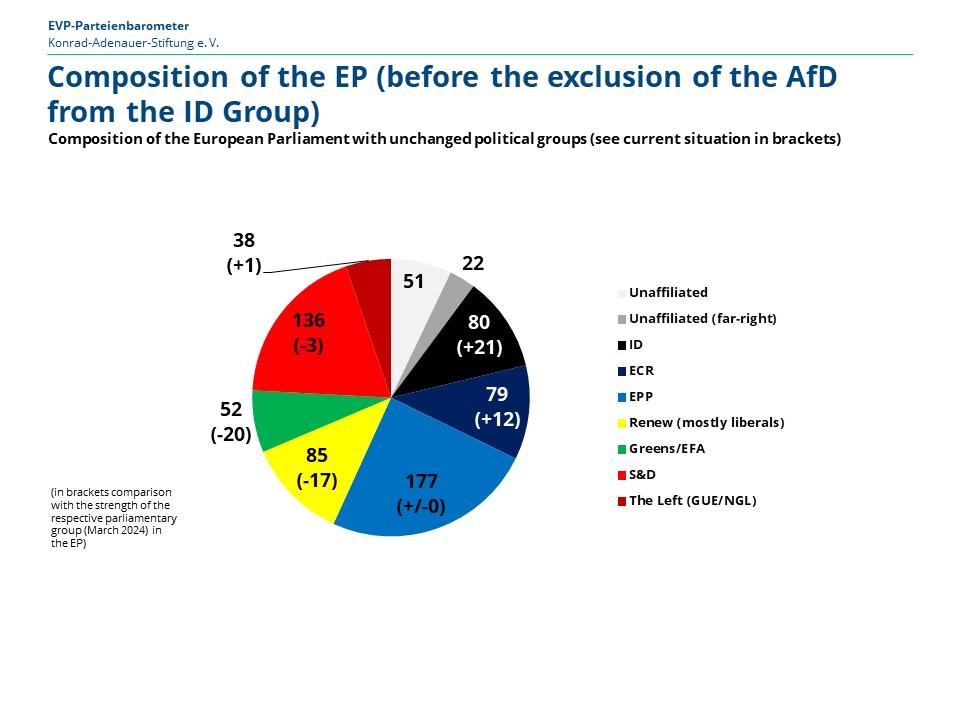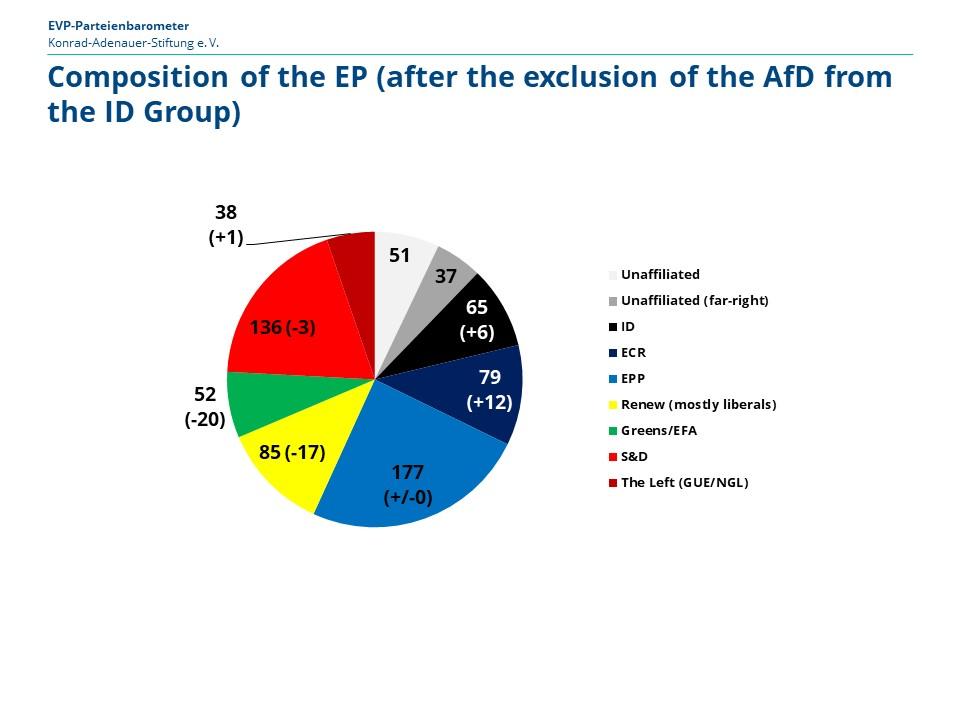Europäisches Parlament / Pietro Naj-Oleari
Composition of the European Parliament
Composition of the European Parliament with unchanged political groups (see current situation in brackets):
The projection uses EP election forecasts, where available, but otherwise has to rely on national polls and then weight these taking into account factors relevant to EP elections. The difference to the current size of the parliamentary group is shown in brackets (the enlargement of the EP by 15 seats in the next EP must be taken into account).
- If we take the current composition of the respective groups as a basis and add the parties that have not only announced their intention to join a party family, but have also initiated it, the following picture would emerge:
- The EPP would retain its number of seats and remain the largest force in the EP. In all probability, the number of seats would be between 164 and 192.
- The Socialists would lose slightly (without the suspended Smer & Hlas (Slovakia)).
- Renew, the ECR and ID are still in a tight race for third place. The two groups to the right of the EPP, ECR and ID would continue to gain seats very significantly but would continue to decline compared to the beginning of the year (reasons: weakness of the AfD, slight decline of several ECR parties).
- The Greens and Renew would lose a significant number of seats.
Situation of the EPP family in the EU
- The EPP family is the strongest political family in polls in 10 countries (in addition, it is on a par with the left in Ireland). the socialist family in 7 (but only if the currently suspended Slovakian parties Smer and Hlas are included). The ID (right-wing fringe) in 4. The liberal Renew is ahead in 2 countries. The Eurosceptic national conservative ECR is ahead in one country. The Left and the EPP are tied in Ireland. In Hungary, Fidesz was ahead (not yet part of a party family) and in Latvia, formally independent parties were ahead.
- The picture is tighter if you look at the strongest single party and not the largest party family: Then the EPP leads in 9 countries (additionally it is tied with the Left in Ireland), the Socialists in 8 (but only if you include Smer), the ID in 4, the ECR in 3, the Liberals in one country. In Hungary, Fidesz (has announced its intention to join the ECR in the EP) is in the lead. However, the lead over other party families or other individual parties is often very narrow (e.g. Portugal, Poland, Belgium, Denmark, Bulgaria, Cyprus, Lithuania, Latvia, Romania) or other polls see a different party family or individual party (Ireland and Poland) in the lead.
Situation in the European Council
- 11 of the 27 Heads of State or Government in the European Council currently belong to the EPP family. If you add the President of Cyprus (formerly a member of an EPP party, now independent, but invited to EPP summits), the EPP has 12 heads of state and government in the European Council.
- 5 (4) belong to the Social Democrats/Socialists (S&D) (but only if you include Smer/Robert Fico despite his suspension from the PES).
- 5 heads of state and government belong to the Liberals/Renew. Due to the upcoming change of government in the Netherlands, the number could soon fall to 4.
- 2 belong to the Eurosceptic conservatives of the ECR.
- 4 are formally independent, including the Prime Minister of Hungary. If the President of Cyprus is not included (see above), there are only 3 independents.
You can find the complete analysis here.







